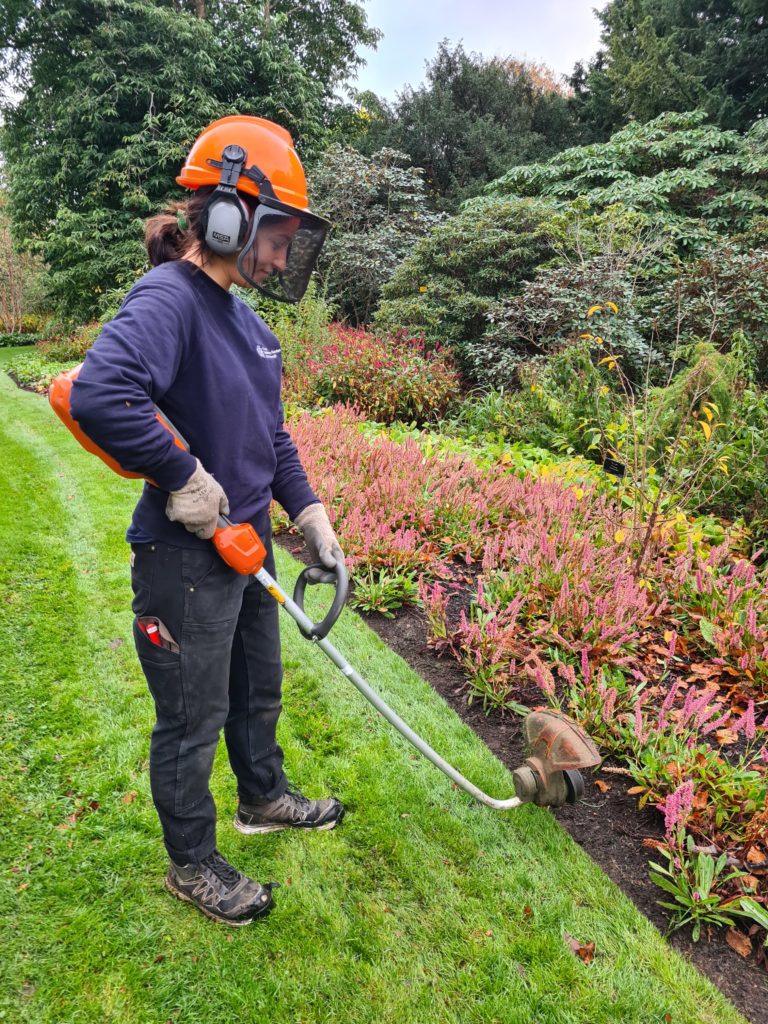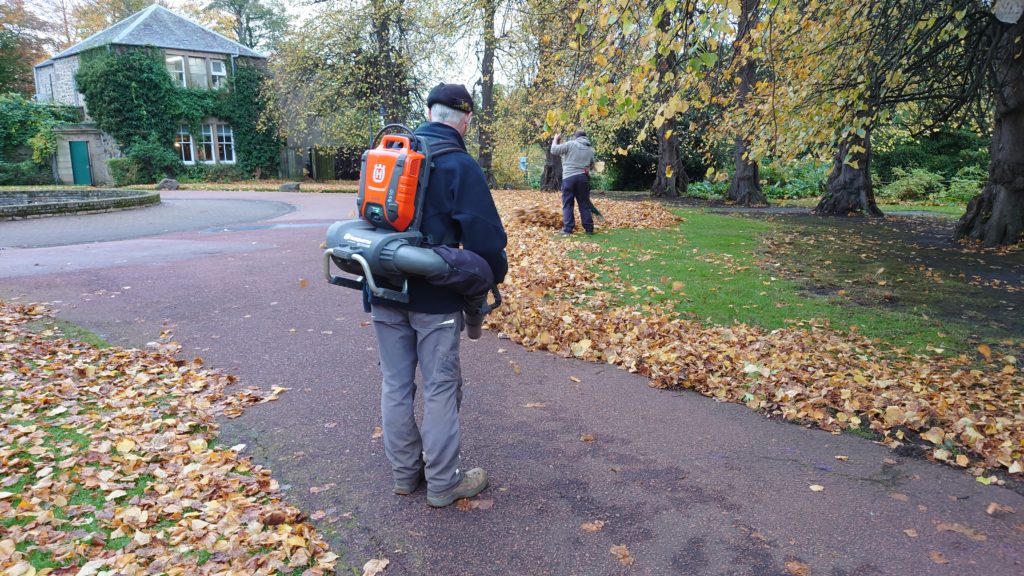By Philip Ashby with contributions from Martyn Dickson
Change is an integral part of life and for horticulturists this is also true. We work with the seasons and an ever-evolving landscape. Climate change is now part of life and scientific evidence for the warming of the climate system is unequivocal (Intergovernmental Panel on Climate Change, 2021). The need to change how we work has never been greater. See the Science and Biodiversity Strategy 2021–2030 for more information on how RBGE is responding to the biodiversity crisis and climate emergency. It is important to review working practices and look at how we can be safer, more efficient, healthier, better informed and keep within budget!
In the 1970s the Garden purchased a set of ‘Little Wonder’ electric hedge cutters. These tools replaced the hand shears used for cutting the historic beech hedge and the holly hedge which enclosed the perimeter boundary at that time. The hedge cutters helped to speed up the task and had comfort and health benefits for the operator. Unfortunately, they didn’t work well in the rain and were attached to a fossil fuel powered generator.
Throughout the last 30 years two-stroke horticultural hand tools have been dominant, and they come with their own challenges. Vibration, noise and pollution affect not only the operators, but our visitors and the environment. With this in mind, RBGE horticulturists have been researching more environmentally sustainable machinery which offer a better operator experience. This search has led us to battery operated tools.

The first battery operated machines to be trialled were just not up to the task. Now technology has advanced and has caught up with the two-stroke alternatives. There is a marked reduction in CO2 emissions and these machines use much cleaner energy. In addition, RBGE purchases electricity from renewable sources. The levels of noise and vibration created by the machinery are much reduced, and staff using them for the first time, report that they are more pleasant to use. The lack of noise and fumes mean that visitors can enjoy less polluted garden landscapes and the living collection in relative peace.
Once the trials with a selection of equipment had been completed, the next stage was to seek funding to purchase new tools. Budget requirements have been spread over the financial years of 2019/20 and 2020/21 to enable replacement of over 80% of the petrol-fuelled hand tools. In 2021 we bought the first battery operated push mower.
This initiative will not stop at hand tools: Battery-operated chippers, ride-on mowers, diggers and telehandlers have all been trialled with great success. With wider support and encouragement, the RBGE battery-operated fleet will continue to grow and replace fossil-fuelled machinery.
Reference: Intergovernmental Panel on Climate Change (2021) Available at: https://www.ipcc.ch


Antonia Ko
I used to work with a gardening company and the use of heavily-polluting gear (most runs on gas) was something I always hated, but ever since I focused more on zero-waste activism and education, I realized I am not alone and there are so, so many people who want more eco-friendly tools! I literally have people asking once every couple of days!
Anotnia KO
https://escapewaste.com/